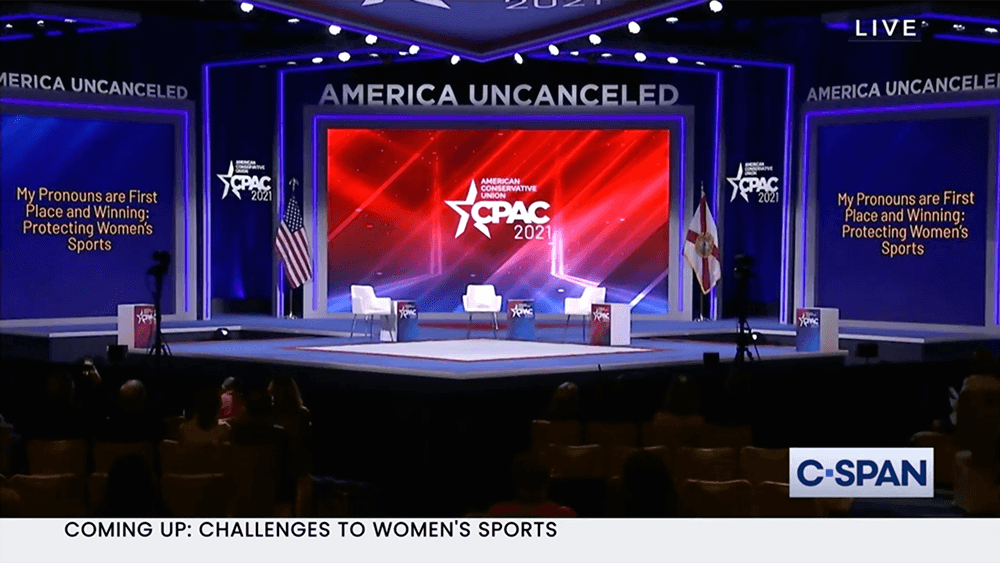
The Conservative Political Action Conference (CPAC) and Hyatt came under fire earlier this year because of the event stage at the Hyatt Regency Orlando. (Video screen grab)
When the Conservative Political Action Conference (CPAC) met at the Hyatt Regency Orlando, Feb. 25-28, the event stirred up controversy over attendees’ objections to wearing masks. But the environment itself also became a hot topic on the news and social media. The CPAC stage set design drew comparisons to an Odal or Othala rune — a Nazi symbol used in place of a swastika. CPAC’s organizers issued a statement that the design had no ties to Nazism, and Hyatt had to denounce any association of its brand with hate symbols.
In one statement, Hyatt wrote: “When we learned that CPAC 2021 stage design had been compared to a symbol of hate, we promptly raised this concern with meeting organizers who strongly denied any connection to such symbols. Had we initially recognized the potential connections to hate symbolism, we would have proactively addressed it prior to commencement of the event. Unfortunately, this became clear to us only after the event kicked off. With CPAC’s denial of any intentional connection to hate symbols and our concerns over the safety of guests and colleagues in what could have been a disruptive situation, we allowed the event to continue. We understand and respect the opinions of those who might disagree with that decision.”
RELATED: Enforcing Mask-Wearing at Events
Phoenix, Arizona–based attorney Lisa Sommer Devlin told Convene that the law does not give Hyatt — or any event venue — much room to weigh in on an event’s content. “As places of public accommodation, venues cannot discriminate based on a number of factors, including race, religion, and politics,” Sommer Devlin said. “If they start getting into approval for political questions, they’re going to get sued.”
Additionally, Sommer Devlin said that if a hotel asked to review and approve set designs it would open up “a Pandora’s box of problems,” including the potential need to review what speakers might say in the program.
“Policing events based on who someone is, what they believe, or what they’re going to say,” she said, “can get you in trouble.”
Even so, Hyatt has drawn a line when it comes to hosting known hate groups. Hyatt issued a statement in late 2018 in response to controversy over the annual conference of the anti-Muslim hate group Act for America held at the Hyatt Regency in Crystal City, Virginia in September of that year, as reported by Huffington Post. “On the heels of some guest and colleague feedback we received about groups, we decided it was the right time to take a fresh look at our practices around hate groups,” a Hyatt spokesperson said in a statement. “This is a complex and emotional issue, but what we’ve concluded is that we need to commit to a higher level of vetting such that groups using hate speech, primarily seeking to disparage or demean a particular group, are not welcome in our hotels.”
David McMillin, former Convene associate editor, is a freelance writer based in Chicago.
